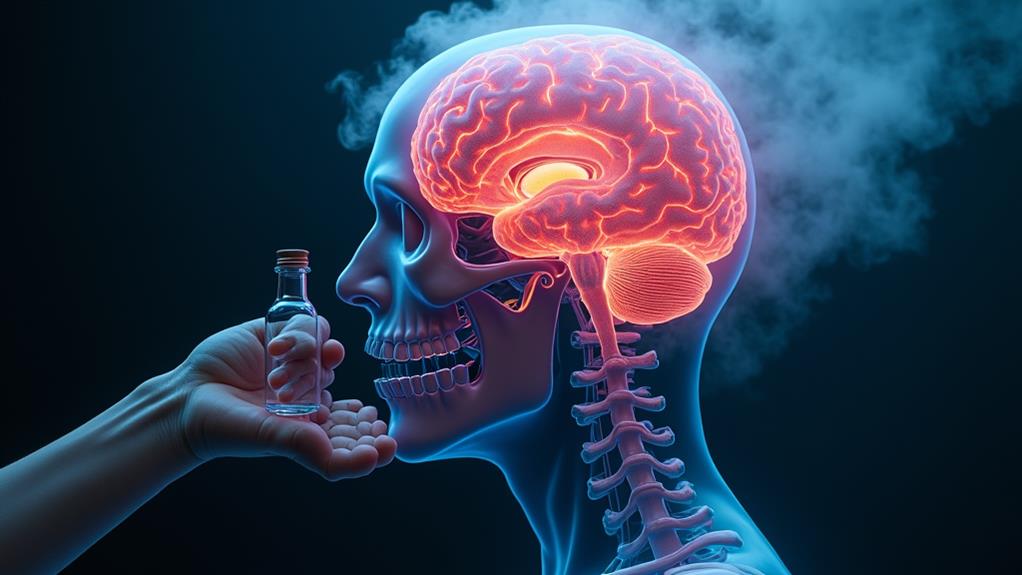This Is Your Brain on Poppers: The Dangerous Ways It Alters Your Mind and Body
Poppers, composed primarily of alkyl nitrites, rapidly affect the brain upon inhalation. These volatile compounds trigger immediate euphoria and sensory improvement by dilating blood vessels. Nonetheless, they additionally impair decision-making and flood the limbic system with dopamine. Long-term use can lead to cognitive decline, memory impairment, and potential irreversible brain damage. Physical health risks include cardiovascular issues, respiratory complications, and immune system suppression. Although not typically physically addictive, psychological dependency can develop. Users may experience cravings and difficulty functioning without poppers. Understanding the full scope of these dangers is vital for anyone considering their use.
The Chemistry of Poppers
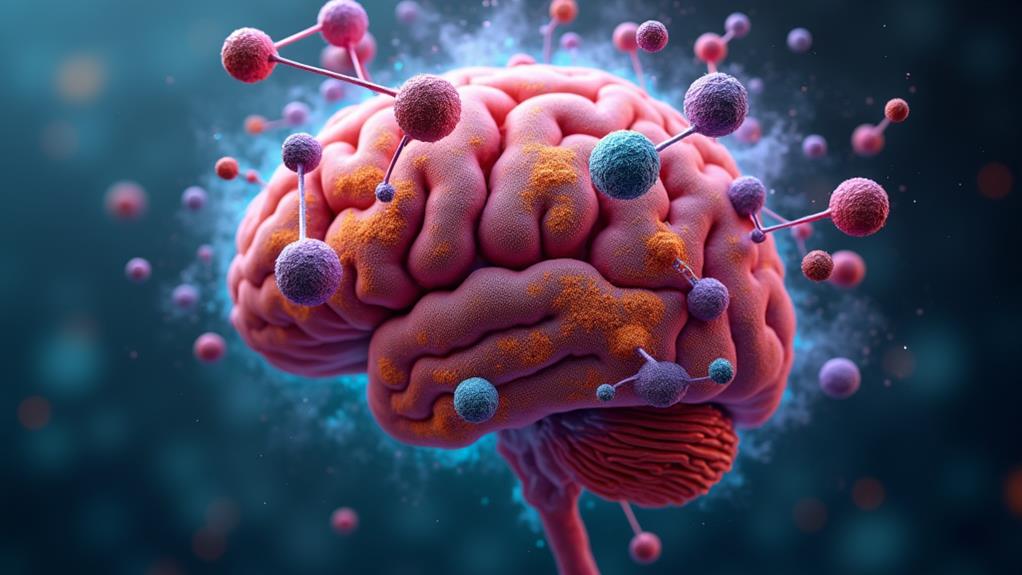
The Chemistry of Poppers
Composed primarily of alkyl nitrites, poppers are volatile organic compounds that have gained notoriety for their recreational use. These substances, typically inhaled, rapidly enter the bloodstream through the lungs, causing an immediate physiological response.
The chemical composition of poppers varies, but common formulations include isopropyl nitrite, isobutyl nitrite, and amyl nitrite. Upon inhalation, these compounds quickly break down into nitric oxide, a potent vasodilator that induces a rush of blood to the brain and other organs. This sudden influx of blood produces the characteristic "high" associated with popper use.
Although their recreational use has become widespread in certain communities, it's essential to understand that the chemical properties of poppers can lead to potentially harmful interactions with other substances and medications, particularly those affecting blood pressure or cardiac function.
Reports of Popper Maculopathy and other visual disturbances highlight the potential health risks associated with these substances. Users should be aware of the misleading information and safety concerns that have been identified.
Immediate Effects on the Brain
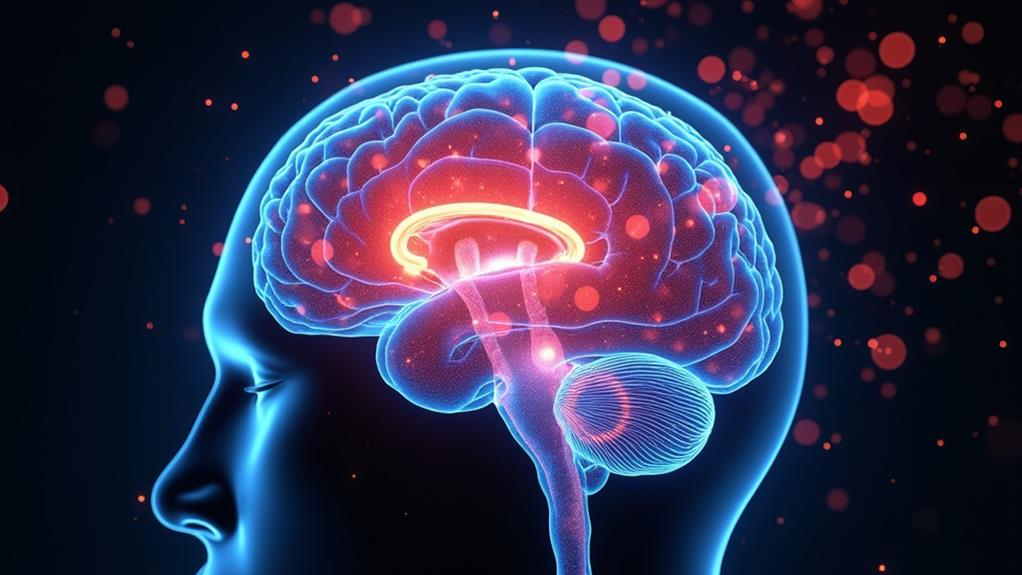
The rapid entry of alkyl nitrites into the bloodstream triggers an almost instantaneous cascade of neurochemical events in the brain. Within seconds, users experience a rush of euphoria induction, accompanied by sensory improvement. This occurs as poppers rapidly dilate blood vessels, increasing blood flow to the brain and altering neurotransmitter activity.
The sudden influx of nitric oxide affects multiple brain regions simultaneously. The prefrontal cortex, responsible for decision-making, experiences temporary impairment. Meanwhile, the limbic system, particularly the nucleus accumbens, is flooded with dopamine, producing intense pleasure.
The amygdala's functioning is likewise disrupted, potentially reducing anxiety and inhibitions. Inhalation can lead to headaches, dizziness, and an increased heart rate, which emphasizes the importance of understanding the potential health risks.
These immediate effects on the brain contribute to the appeal of poppers among users seeking heightened sensations and social connection.
Nevertheless, the rapid onset and intensity of these neurological changes likewise present significant risks to brain health and cognitive function.
Long-Term Neurological Consequences

During the immediate effects of poppers on the brain are well-documented, what are the potential long-term neurological consequences of chronic use?
Research suggests that habitual inhalation of poppers may lead to significant cognitive decline and memory impairment over time. Studies have shown that prolonged exposure to alkyl nitrites, the active compounds in poppers, can damage neural pathways and disrupt neurotransmitter function.
Chronic use has likewise been linked to irreversible brain damage, particularly in the cerebral cortex and cerebellum. Chronic users may experience difficulties with information processing, attention span, and decision-making abilities.
Furthermore, some evidence points to an increased risk of developing neurodegenerative disorders later in life. Although more research is needed to fully understand the extent of these long-term effects, the potential for lasting neurological damage should not be underestimated.
As a community, it's vital to be aware of these risks and support those seeking to reduce or eliminate their use of poppers.
Physical Health Risks
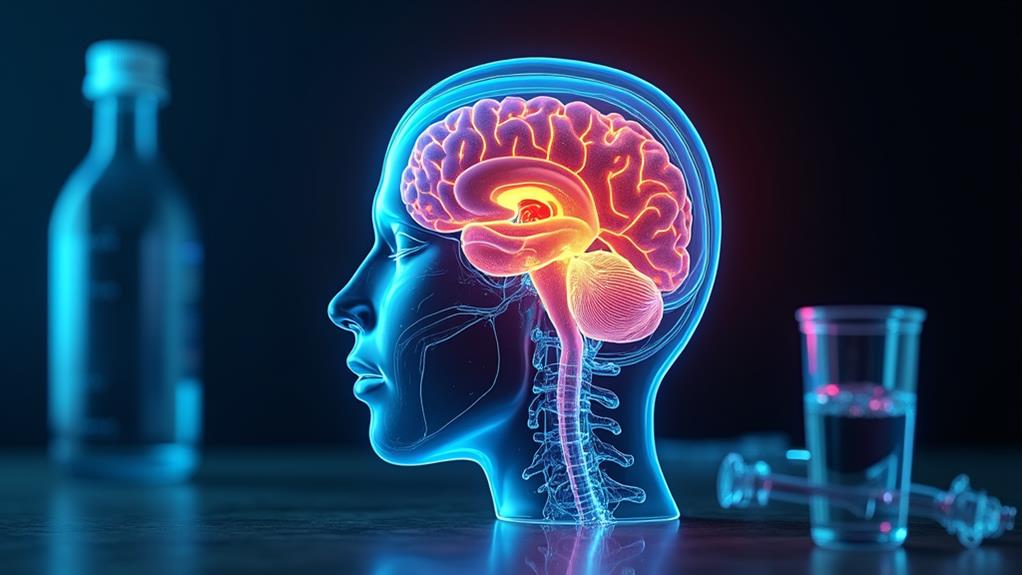
Beyond neurological impacts, poppers pose a range of physical health risks that warrant serious consideration.
Cardiovascular issues are among the most concerning, as poppers can cause sudden drops in blood pressure and irregular heartbeats.
Respiratory complications may arise from inhalation, potentially leading to lung damage or exacerbating existing breathing problems.
Users may additionally experience visual disturbances such as neon snowflakes, which can be alarming and indicative of other underlying issues.
Regular use of poppers can suppress the immune system, making users more susceptible to infections.
Regarding sexual health, the muscle relaxation effects may increase the risk of sexually transmitted infections because of reduced pain sensation and potential tissue damage.
Overdose risks are present, particularly when combined with other substances or in individuals with pre-existing health conditions.
Although some users may seek the temporary euphoria and improved sensations poppers provide, it's vital to understand these significant physical health risks before engaging in their use.
Addiction and Dependency Concerns
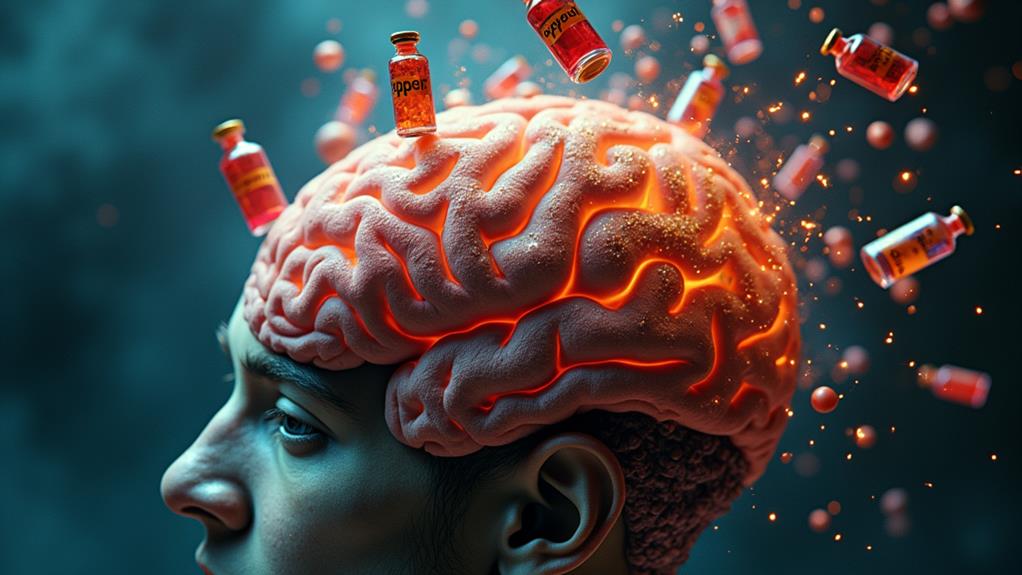
Although poppers are not typically considered physically addictive, psychological dependency remains a significant concern. Regular users may develop a habit of relying on poppers for sexual experiences or social situations, leading to psychological cravings and difficulty engaging in these activities without the substance.
While physical withdrawal symptoms are rare, some individuals report feeling anxious or irritable when unable to use poppers. Eye discomfort, including pain, dryness, and sensitivity to light, is also a reported side effect that can exacerbate psychological stress.
The risk of psychological dependency increases with frequent use, as users may associate positive experiences with popper consumption. This can result in a cycle of continued use to recreate those feelings.
Furthermore, some people may use poppers to cope with underlying issues such as social anxiety or sexual performance concerns, further reinforcing the psychological dependency. Recognizing these patterns and seeking support from healthcare professionals or support groups can be essential for those struggling with popper dependency.
Call Us To Assist You
To summarize, the allure of poppers' fleeting euphoria masks a chemical cocktail of neurological havoc. As users chase momentary bliss, their brains endure a rollercoaster of vasodilation and oxidative stress. The long-term prognosis? A mind potentially riddled with cognitive deficits and a body vulnerable to various health risks. As science unravels the intricate interplay between alkyl nitrites and human physiology, one thing becomes clear: the brain on poppers is a cautionary tale of chemical Russian roulette.
